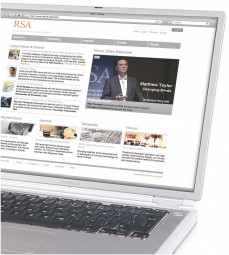I can help you dig deeper into your organisation’s offer and create a narrative that is right for you and your audiences – like I did at the Royal Society for the encouragement of arts, manufactures and commerce (RSA).
The Royal Society for the encouragement of arts, manufactures and commerce (RSA) was founded in the 18th century coffee houses by an entrepreneurial drawing master, William Shipley, who wanted to encourage innovation for the good of society. It gave birth to initiatives as crucial as the penny post, improved education for women, the discovery and import of vital food stuffs and even the public lavatory.
The organisation felt its history was its story and it took some persuading to convince them that whilst this was its licence to operate, it was just one part of its narrative. People also wanted to know what the RSA is and what it does in today’s world.
By interviewing staff, RSA fellows and key stakeholders I identified what it had to sell from its current portfolio and how this related back to its history. As a focus I used the Coffee House Challenge – an RSA debating programme in Starbucks coffee shops which results in innovative community projects. This brought history and current work together and created a platform for showcasing the RSA’s bigger projects. I brought a story telling approach to the organisations communications based on 4 key components:-
- The ‘RSA story’ – explaining who we are
- Shop window – showing what we do through our work
- Showcase – key campaigns
- Plan, review and measure impact
And clear outcomes:-
- one cohesive story with associated tools, targeted media and public affairs
- a programme of targeted proactive/reactive day to day media/parliamentary contact, an expert spokesperson base to establish credibility
- highlights which generate quality coverage and profile and sustain them with story spin-offs and follow-ups
- a joined up, planned approach to RSA communications across the organisation
The RSA still uses this approach to communications. Its story as a key influencer is much clearer and agencies are brought in to promote key projects while the inhouse team run an ongoing programme of pr and promotion. Giving the past its rightful place in an organisation’s story doesn’t happen over night but, by focusing on the present and future more clearly the RSA now has a much better chance of survival in today’s world. You only have to see Matthew Taylor’s video introduction to the organisation to see how it works in practice.
I could do that for you……
